|
Growing as People Introduction Another exciting week at the Youth Farm continues to bring smiling faces and a determined attitude across the fields and sweeping into the farm at 8:30am sharp. As the crews continue to learn how to work best within their groups, everyone has been able to grow more comfortable with the responsibilities they have and purposes they serve. Revisiting why we have certain aspects of our farm such as opening the U-Pick garden to BIPOC folks and to low income folks in the Ithaca community to why we have the goats this summer helps the teens learn more about all the details that go into the hardworking life of farmers. More importantly, the groups have been able to contribute significantly and make great progress on the farm while also developing their skills. The rotation of jobs such as washing the harvest of the week, trellising tomatoes, weeding, and cooking with our program chef all contribute to a well rounded understanding of very distinct and crucial knowledge for all that involves the growing and preparation of the food provided by the farm. Supporting Personal Development
But another important part of this program deserves its shoutout, and that’s the program’s dedication to developing the intrapersonal skills of the crew members. Learning how to be comfortable with themselves, their expression of their personalities and identities, is an important lesson and the teens were guided in this conversation by presenters who gave an insightful presentation on Gender and Sexuality. Another workshop, the Boundaries workshop led by farm assistant Leila Kiraz, also detailed ways to respect others and understand how to be mindful of their peers’ boundaries. These skills plus more are shaping the teens to be mindful of themselves and others, exercising healthy relationships with those around them and with themselves, all while they continue working hard on the day to day tasks that each new day brings them. And as many of our teens balance other jobs in the community, their regular farm work also helps develop skills essential for the workforce. Time management is one of the most important skills to work on for anyone, and sticking to the schedule as there is so much to do in a day is necessary for all of the members to understand. Communication and organization skills follow as these will allow all of the daily tasks to get done in an efficient and timely manner, allowing for the teens to learn how to work best with each other and move on to the next task at hand. All of this and more has allowed the group to become strong workers on the farm, who bring excitement and dedication to their work as they continue to learn about themselves, their peers, and the wonders of working with the land. By Melissa Montejo It Takes a Team Introduction And we’re off! The farm came alive Monday morning as the program officially launched! With enthusiasm in the air, the day started with introductions and games to learn each other's names. The teens toured the farm and became familiar with the spaces they will be stewarding this summer. As is the nature of beginnings, getting the logistics out efficiently helps prepare the team to hit the ground running, so they quickly become experts with the many duties and roles these young farmers are given. Getting in the Groove
Throughout the week the teens were introduced to various types of farm chores and fieldwork they would engage in. Taking care of the chickens and goats, and maintaining our common spaces are some of the tasks the teens jump on right away after their morning check-in. Following this routine are separate assignments in smaller groups, and as the teens scatter around on the farm they become well-versed in the fieldwork that they will master by the end of the summer. Whether that’s trellising tomatoes, setting up posts, harvesting produce or fixing irrigation, the teens have the best attitude to approaching these unfamiliar tasks, embracing the chance to learn any and all new skills that develop on this vibrant land. When teens aren’t farming they are engaging in various social justice or land-based skill workshops! The group so far has had the pleasure of hearing from a local community herbalist, Amanda David, as well as local beekeeper Gil Menda, who both gave fascinating introductions to their expertise and gave teens an up close look into these captivating concepts. Both of these workshops have been able to harness part of the farm in a way that reshapes how the teens observe these spaces. Amanda’s walkthrough of the various uses of the herbs and plants in the gardens opened their perspective to the diversity of purpose that exists in the plants that they’re engaging with everyday. Gil’s demonstration of setting up an observation beehive was an amazing informational base for the intricate world of bees, giving teens the ability to interact with these creatures and ask questions on the why’s and how’s of beekeeping, bee life, and bee intelligence. This paired with the daily chores of the farm, field trips on Fridays, and fun activities all have created a vibrant atmosphere for the teens to learn and engage in. As the teens wake up early again the next morning they know they get to look forward to something new the next day! By Melissa Montejo Introduction A fresh breeze is always relaxing after a long morning of chores, and the sound of laughter and sight of smiles creates a shine that brightens the farm even on one of the more cloudy days of the week. Our four rockstar crew leaders Fatou, Jolie, Tara and Paula arrived on the farm this week to begin familiarizing themselves with their new positions for the summer, and I had the opportunity to meet all of them and learn how I can best support them. The crew leaders and staff spent the week running through the various types of morning chores, taking on new responsibilities and getting more and more excited for what this program will bring them. The staff’s continuous support for the program’s implementation can’t go unnoticed, from Lechandre’s delicious meals to Liz’s leadership on the field and everyone’s teamwork makes this year’s summer program another great start towards success for everyone whom the program interacts with. 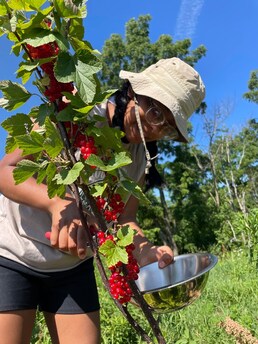 Crew leader Paula harvests currants. Crew leader Paula harvests currants. Learning to Do One of the biggest components for leadership training is learning the best way to engage with everyone, the land, and becoming comfortable with all of the responsibilities and the systems in place for this program to run smoothly. I’ve come to recognize the levels to learning at the Youth Farm Project, where some are more simple like recognizing all the food being grown in the different spots on the land or learning types of farm tools and practices, to others that require a bit more imagination, such as learning how to engage everyone on the farm so that they know how to enjoy themselves while still contributing to our mission. An aspect of this that I saw stood out was watching a leadership training exercise for our crew leaders, where they were given certain scenarios they might encounter on the job and had to figure out the best way to approach these situations. All of their responses came from a place of respect and in the best interest of everyone involved, demonstrating that our leaders understand their roles as mediators, listeners, and mentors, knowing that they will set the standard for positive and meaningful interactions with their fellow crew members and staff. As someone who is observing these interactions, I’m happy to report that I have 100% faith in our crew leaders in serving to the best of their ability, ensuring they are not overworking themselves while still managing to fulfill their duties as role models on the farm. I look forward to watching these lovely people grow into strong leaders for our program, and want to do everything I can to make sure all of their needs are met. By Melissa Montejo 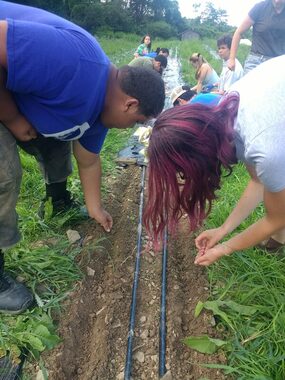 Julia de Aragón remembers the conversation that precipitated her research with the Youth Farm Project (YFP) with stunning clarity. She was crouched on the front of YFP’s tractor “sprinkling chicken poop” onto the soil and out of an old soup container as Ann Piombino (Co-Founder and former Farm Manager and Educator) drove. Julia was not a stranger to YFP or to Ann. As a young person, she found that YFP was interwoven with her life in a variety of ways. Dan Flerlage (Co-Founder and Board Member) had been Julia’s ecology teacher and mentor in high school. Katie Church (Co-Founder and Director of Administration) was the mother of one of Julia’s classmates. Julia had been a Summer Program teen at the age of 15 and spent the summer with her hands in the dirt, pulling weeds and harvesting fresh vegetables with other teens. After her experience in the Summer Program, Julia found herself returning to YFP time and time again. Her narrative thesis for her undergraduate degree included elements of YFP’s work. YFP became a “refuge” to her during the Spring of 2020 when COVID-19 reached across the globe and displaced her from the relative certainty of her Master’s degree studies at Vanderbilt University in Tennessee. And most recently, Julia has become a member of the YFP Board. Julia feels honored to be the newest Board member and describes stepping into this role as coming full circle with the farm. She is excited and prepared to ensure that YFP continues to provide the same opportunities to young people that she got to experience when she first joined the YFP as a 15 year old Summer Program teen. One significant way in which Julia has recently contributed to YFP’s, and more specifically, the Summer Program’s resilience has been through her Master’s degree research. Julia’s research findings and analysis are particularly moving. She describes her research as transformative in her own life and in terms of what they reveal about YFP. The research offers YFP the chance to constantly reflect on our Summer Program and adapt to continue to meet young peoples’ desires and needs. Julia’s findings also offer YFP a more nuanced way of representing the beautiful and sometimes enigmatic impacts of our work to community members, youth participants, and even funders. And it all began with her crouched on the tractor and “sprinkling chicken poop” with Ann. This meditative and slightly silly job offered Julia the perfect opportunity to share with Ann that she needed to create a capstone project for her Master’s degree in Community Development and Action. She wanted to conduct meaningful community-based research that answered questions that YFP wanted answers to, rather than imposing her own research questions onto the organization. When Julia shared her hopes and inquiry with Ann, Ann responded with excitement. YFP needed a way to concretely understand and archive the experiences of youth in the Teen Summer Program. Ann suggested that Julia create three sets of evaluations (pre-, mid-, and post-program) so that participants could reflect on their experiences working as part of the crew. Julia got to work, constructing three evaluations that asked young people a variety of questions. The evaluations got at questions such as what participants expected to value and be challenged by and what they actually valued and felt challenged by throughout the summer. Julia nurtured her relationship with the 20 young people working at YFP that summer of 2019 and came back to school ready to continue making meaning of it all. She found it “so special” and “rewarding” to read participants’ words and to trace the marked expansion of their confidence. The most clear-cut finding of Julia’s research was that participants valued the program’s engrained experience of “hands-on learning” more than many other elements of the program. “Hands-on learning” is so fundamental to the process of growing food and growing community. While this work can be rewarding and literally life-sustaining, it is most definitely not easy. There is so much surrounding this work of nurturing our relationships – to ourselves, to other people, to the land – and of growing food that remains out of our control. Surprising changes in the weather can change farmers’ plans for an entire day, week, or even season. Plants that look beautiful and lush one day might disappear to the appetites of groundhogs, birds, or aphids overnight. I know that I recently felt disheartened when I transplanted an entire bed of cabbage seedlings, went home feeling accomplished, and came back the next day to find some leaves riddled with holes and some completely gnawed off. Even though these are just some of the many challenges that come with growing food, so many people persist in this work. And so many people cultivate and find joy, beauty, and care in daily unpredictability. We never have complete control over our lives and work, especially when we are always in relationship with other complex and autonomous beings. Youth participants of the Summer Program continue to experience and express in their own words that this work can be arduous and fulfilling at the same time. Remarkably, Julia found in her research that young people not only valued challenges, but that they valued challenges even when they did not show marked improvement in the face of such challenges. This is a remarkable finding not just because of the sheer self-trust and openness inherent in the act of valuing challenges for their own sake, but also because of what this valuing tells us about the basic needs of the Summer Program participants. Julia analyzed her research findings partially through the Self Determination Theory (SDT) Framework. The SDT framework claims that individuals feel most motivated when three fundamental needs are met. These three needs are (1) competence, or the the ability to do something well, (2) autonomy, or the freedom and space to make independent decisions for yourself and your community, and (3) relatedness, or the feeling of being part of a strong and caring community. It is wonderful news that the teens valued being challenged just for the sake of being challenged because this tells us that all three basic needs of the summer crew members were being met and cherished. Young participants felt confident enough in themselves and their crew to fully and vulnerably embrace difficulty and uncertainty in the work of growing food. People, and nonprofits in particular, often celebrate when individuals walk away from their programs feeling skilled, empowered, and part of communities of care. These three basic needs are definitely meaningful outcomes of a lot of organizational programming. But Julia and her research reminds us that these fundamental needs can and must also be fundamental “inputs” to programming. Young people must feel empowered as individuals and community members throughout all programming so that they have the space to reach toward even more sustainable and meaningful outcomes, such as valuing challenges. We are so grateful for Julia’s research and what it affirms about YFP’s work and offers for future YFP directions. We are so grateful for Julia’s ongoing care for YFP and can’t wait for her to continue to offer her insight and movement as part of the Board! We also cannot wait for the Summer Program to begin and for young people to continue to step into their power. - Written by Emma Badini Photos of Teen Summer Program 2019. THIS SUMMER, WORK WITH US!
If you are a teen interested in working with us during the summer, apply here. Hope, with a strong measure of hard work. This morning the farm was covered with ice crystals, the summer's dry stalks of burdock and grasses shimmering. As the Sun rose higher and warmer, everything sparkled. We know that nature is healing and grounding, and we are thankful for the time on this land. 'At the Youth Farm Project we look at the farmland as the heart of our life changing programs. It is a real ‘reap what you sow’ situation in more than one respect, but one we take great care in tending and cultivating. While we primarily grow annual vegetables on a scale similar to that of an active vegetable farm, it gives us unique opportunities for education and job skills training. We feel that the success of our programs stems from the fact that the experiences we provide are relevant, offers the opportunity to form deep relationships, and is rigorous enough where one can tap into undiscovered inner strength. We are excited to look to the future and forming a farm plan that includes more perennials like fruit trees, berry bushes, perennial herbs and flowers, animals, bees, and someday, a year round facility where we can cook, learn, and be together in all times of the year.' - Ann Piombino, Lead Farmer and Educator In 2018 we started adding some exciting new elements to our farm-scape including raising baby lambs for one of our partnering farms, Black Pearl Creamery, and designing and installing a perennial herb garden. The lambs created a whole new experience, one that we have been looking forward to, for youth to interact with animals. We were able to watch the lambs grow, take responsibility for their chores, and learn a whole new set of skills around accountability as well as an endless supply of cuddles, laughs, and antics. The perennial herb garden has also added a dimension of depth and beauty to the farm this year and has supplied us with endless possibilities; teas to enjoy during our programs and share with our guests, flavor for our meals, a forage spot for pollinators, an herbal medicine chest, and a place to explore our senses. Here's one account from a teen from our 2018 Summer Program: “I personally have amazing experiences from the two summers I have worked on this farm. I have learned so much and not just about farming, but communication, tenacity, and leadership too. Ann, the farm manager, and all the other amazing people that work at the farm, have helped me grow as a person. Meeting new teens from around Ithaca is always interesting from the diversity of backgrounds from which the kids come. I have made two very good friends through working here who I likely never would have met otherwise, as well as a whole host of other people who I now know through the farm. I owe the Youth Farm and everyone who works so tirelessly every year to make it function, all the praise in the world for what they have done for my life, for making the Youth Farm Project a place where I feel at home.” 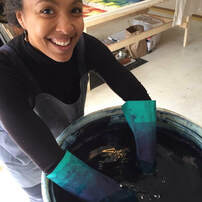 We welcomed Christa as the Fresh Snack Manager in September 2018. We are lucky to have her - and if you are connected with a child in the Ithaca City School District, YOU ARE TOO! She is a fierce and caring advocate for children, for health, and for community, and she is making sure kids eat fresh, healthy food during their school day. Christa's bio---> In Fall 2018 we served 3,364 snacks PER WEEK in local elementary schools! Due to a newly funded Tompkins County School Food Project, we are looking forwards to expanding the Fresh Snack program to more Tompkins County schools in 2019. Read more here--> The AMAZING 2018 Summer Farm Crew We are in deep gratitude to the strong, loving and joyful humans who worked the farm, modeled honest communication and meaningful work for young people and made it all happen this season. 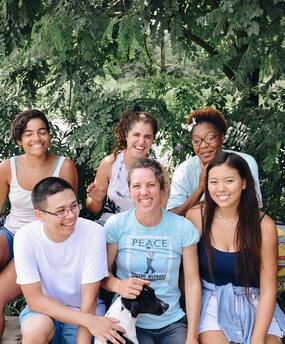 Our amazing Summer Staff (top left to bottom right): Laura, our Farm and Food Justice Educator; Natalia, YFP alum and Assistant Farm Manager; Rose joined us for their 3rd season on Farm Crew; Julian, YFP alum and Summer Intern; Ann, Lead Farmer and Educator; Elizabeth, Youth Coordinator, Intern through the CU Food Systems Minor; and Penny, farm dog extraordinaire. One summer program participant recounted what the strong mentorship meant to them: "Working at Youth Farm Project this past summer was one of the most educational and rewarding experiences I have had in my 14 years of life. The strong women leaders on the farm really made me feel like I was capable and strong and I could do anything I wanted to." Summer Highlights: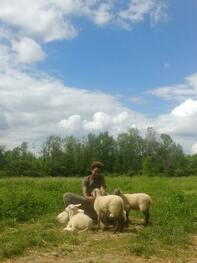 Our wee lambs grew over the summer. Moving the lamb fencing and shepherding the flock to fresh grass every week was every crew's Favorite Chore!  FOOD!!! We cooked with local chefs, brought dinner to Southside Community Center's Summer Camp, and made a delicious farm dinner for all of our parents. And of course we wouldn't be anywhere without pesto! 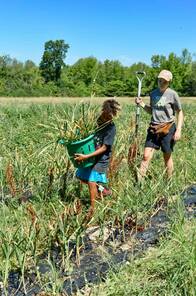 GIAC's Skate Camp came to lend a hand every Thursday morning. In the end of July they helped the Teen Summer Crew harvest that delicious YFP Garlic! So much happens so fast... From garlic harvest to new friends. We worked together through all of it!!!
This last week was a chance for everyone to say goodbye and reflect on our summer together, finding hope in what we have experienced. Tuesday and Wednesday were especially fun.
On Tuesday, we had a dinner for our families. All day, we cooked. We made grilled corn and bok choy, salad and homemade salad dressing, tibs (a traditional Ethiopian beef and vegetable dish), thai stir fry with vegetables and chicken, pesto pasta, cucumber mint water, and currant soda. For dessert we prepared delicious zucchini chocolate chip muffins and shortcake with peaches and whipped cream. Each crew took on a dish or two, and cooked up a storm! Most of the ingredients were fresh from the farm, so the meal was grown, cooked, and eaten at the Youth Farm Project. Food tastes so much better when you have a hand in making it. The barn was decorated with fairy lights and flowers, and everyone went home to wait for dinnertime. The time came, and we all came back with our families. First, there was a tour of the farm, during which each crew presented their field and crew members described what we had been doing in them all summer. Our parents finally got to see what we had been up to. Then, once everyone was hungry from the walk around the farm, we went back to the barn to eat. It was satisfying to share the culmination of all our efforts with friends and family. On Wednesday, we had a tour of the Good Life Farm and drove down to Taughannock Park for a barbecue. The Good Life Farm is horse powered, and has two cute dogs, turkeys, fruit trees, grass fed beef, and greenhouses full of ginger. When we went on this tour last year, there was a cider house under construction. This year, the cider house is fully fledged and looks beautiful. At the end of the tour, we found doughnut peaches on the windshields of the cars. Yum! At Taughannock Park, Frank, head chef at North Star came down and grilled chicken and vegetables with us. We also made Panzanella, a dish with bread, tomatoes, basil, vinegar and oil. My favorite part of the day, though, was a barefoot soccer game on the grass. Thursday was a regular workday. Friday, we worked in the fields in the morning and after lunch we filled out an evaluation reflecting on the summer. Finally, we ended the day with the tunnel of love. Two lines face each other, and create a tunnel by meeting hands in the middle. Then, people walk through one at a time and everyone says nice things about them. It gives me hope to think of the long term effects of our activities this summer. Maybe some of the other young people will grow up and start local farms, inspired by the farms we visited over the summer. Maybe some of the young people will major in sustainable agriculture, inspired by what we learned about food deserts. Maybe some of the kids will spread the love that they felt in the tunnel of love. As Martin Luther King Jr. said, “The arc of the moral universe is long, but it bends towards justice.” The work we did this summer pushed that curve towards food justice, and I have hope that we will continue to head in that direction. -Thea Clarkberg, 2015 Crew Leader 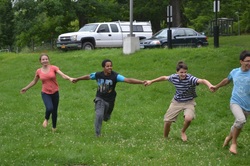 This week marked the beginning of a summer of new experiences for 25 teenagers who set out to find a job. Here at the Youth Farm Project they ended up with something different than they might have expected. From endless beds of weeding, to bagels with cilantro pesto, to running through the Tunnel of Love, a summer at the Youth Farm is an experience you won’t find anywhere else. This summer was my first time leading a crew, bringing me more challenges and rewards than my summer here last year. In this first week I watched everyone meet the farm and learn about what their next seven weeks would look like. Monday and Tuesday were crew leader training days. The other crew leaders and I refreshed our bean planting and carrot weeding skills, and we discussed the responsibilities and goals involved in leading a crew. I learned a lot of new things about the workings of the farm during these two days that had been mysteries to me last summer. Being a crew leader comes with a lot of responsibility, but it also is a lot of fun; sometimes you get to be in on what game you’re about to play, when it’s a big secret to everyone else. On Wednesday all the young people arrived for their first day. Wednesday and Thursday were orientation days, we gave a tour of the farm, met the chickens, discussed work expectations, and played a bunch of name games. One of the biggest surprises, in my opinion, of working on the Youth Farm is all the game playing we do. Games are one of my favorite parts of the work day, something I don’t think most people can say about their job. Another surprise of the Youth Farm is how quickly you can get to know your co-workers. For me meeting people on the farm is different from meeting people at school or another job; I think it’s easier to connect with people when you have to work together to untangle the “human knot”, or to pound a field of tomato-trellising stakes into the ground. In addition to games and orientation on the first two days, everyone was also introduced to farm work, we jumped right in to weeding all of the garlic so it would soon be ready for a big harvest. Week one was a busy start to a busy summer, and I think all of us can say we learned something new. -Corrine Hill-James, 2015 Crew Leader
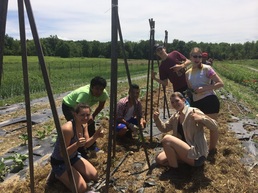 This Spring, Carrie Koplinka-Loehr, an environmental journalist, approached the YFP staff with the idea to produce a more-detailed article for the Youth Farm Project. You can read the article in Green Teacher, a publication that promotes sustainability education. Here are some of my favorite excerpts: - "Crew leaders gain leadership skills by being responsible for the physical and emotional safety of their crew. As a part of this, they model positive communication. Rayna Joyce and Noa Wesley, both of whom have been involved in YFP since the beginning, say YFP encourages “Straight Talk,” a process developed by The Food Project (a non-profit in Boston that hires teens with the goal of creating personal and social change through sustainable agriculture). Straight Talk is communicating honestly about how you are feeling, making eye contact, listening, and learning how to receive feedback. Crew members frame comments into positives (“When we were trellising tomatoes and I needed extra twine, and you jumped and got it”) and deltas, or attributes that could be changed (“While we were weeding carrots this afternoon, you seemed to lack energy when we really needed you. It would be awesome for our crew if you could...”). Wesley, now a student at Cornell University, says, “We’re never really taught interpersonal communication anywhere in our system. That piece is a large part of what we do...and adds another level of depth.”" - “My best day of being a teacher,” says Flerlage, “using activities, writings, whatever else I could think of, doesn’t hold a candle to a bunch of folks working with common purpose in a field. You’re totally together, and differences dissipate.” -"But in the same breath, Flerlage waxes philosophical: “The tendency to underestimate young people is profound. A high percentage of the kids sent to us would have a hard time elsewhere. The Farm is the antithesis of one-size-fits-all. Part of it is the staff and a culture that values things broadly and provides experiences that allow people to shine.”" 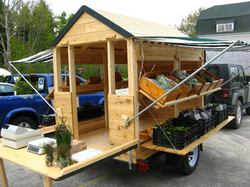 Beginning a new year always holds a sense of transition, in our personal lives and in the work that each of us pours into the Youth Farm. This year in particular I am feeling both fear and excitement for this upcoming change and movement forward, an upheaval that I have never experienced before. It is my senior year of high school, and as I lean into this time of decision making and planning for my future, the years I have spent at the Youth Farm are holding me up, much like the way we lovingly wrap our tomato plants with twine, gently reminding them to keep growing upwards. I couldn’t be more excited, as I plan a gap year of traveling with some of my favorite people on this planet, and make a decision about where I will attend college. My future is filled with some amazing opportunities, and not surprisingly many of them are inspired by my work at the Youth Farm Project. But this excitement is also incredibly bitter sweet, as I begin to think about moving forward, ultimately parting ways with family, friends and this beautiful farm, at least for a little while. Winter on the farm seems to mirror this same transition, as all of us at the farm reflect on the past year and look towards the future. The past five years at the Youth Farm Project have been full of excitement, energy and positive movement forward. Now in this time of beautiful quiet and peace on the farm, we gather with a sense of potential and purpose, to envision how we can continue our supported evolution, expansion and growth upwards. It is with joy that I can share with you plans for the construction of our very own mobile farmers market! The designing and building of this project will be the way in which I demonstrate my readiness to graduate from the Lehman Alternative Community School, where I have attended school since 6th grade. The farm has inspired me to think deeply about my place in the world, what space I want to fill and how my passions and aspirations intersect. This planet is a complex place on which to grow, and I am constantly realizing the ways in which my interest in agriculture, sustainability and social justice connect. It feels fitting to me to embark on this project, which may seem simple at first glance, but actually represents something complex, that contains layers of growth for myself and for the farm. Right now I am in the beginning stages of designing a mobile market stand that will be built using a flat bed trailer, which can be hitched to a car or truck. As the Youth Farm gets older, we have begun to think more about marketing strategies, by creating value added products, and attending various farmers markets. Having a mobile market stand will allow us to travel more freely around the community, and give youth working at the farm more opportunity to gain experience interacting with consumers. In addition, it will offer us the potential to address needs in our community, by reaching areas that have less access to affordable, local, organic produce. Food justice is a concept that was introduced to me during my first summer of work at the Youth Farm. To me the concept represents a complex intersection of issues, which leads to unequal opportunity in the ability to afford healthy food. Because it is a complex issue, solutions are also complex, and I feel clear that simply bring food into a community that “needs it” is not a sufficient solution. That is a solution that ignores complexity, and takes us away from the root cause of such injustice. Having this mobile market will allow the Youth Farm to eventually expand our work towards food justice, through conversation, and connection with community leaders. It is our hope to re-envision and add to our year round program, providing youth with a an opportunity to focus on social justice, community organizing and activism during the winter months. Creating change takes time, which is why we continue to reflect and move forward. This mobile market will be under construction this summer by a team of young women, led by Maria Klemperer-Johnson at Hammerstone Carpentry School for Women. The goal of working with Hammerstone is to empower myself and other young women, a demographic that is not often found in carpentry or construction. In the mean time I am busy creating designs, writing grants, and planning fund raisers. I am filled with gratitude and hope. Times of transition are challenging for us all, but it is my wish that by reading this you will feel the same energy and excitement that I feel. Stay tuned, things are moving in wildly positive directions. -Rayna Joyce (LACS Senior & YFP Crew Leader) P.S. Check out our Get Involved section for more information on this project, and a registration form for the Hammerstone class! |
Archives
August 2022
Categories |
||||||||
The Youth Farm Project | 24 Nelson Road, Ithaca, NY 14850 | [email protected]
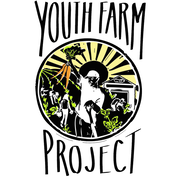
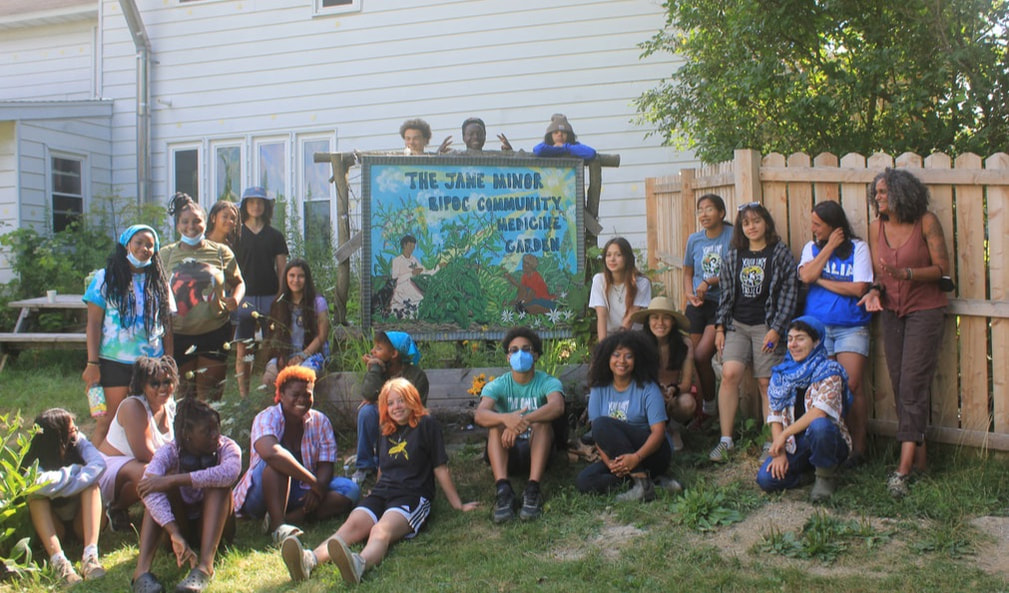
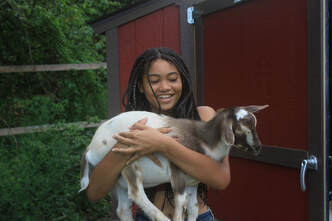
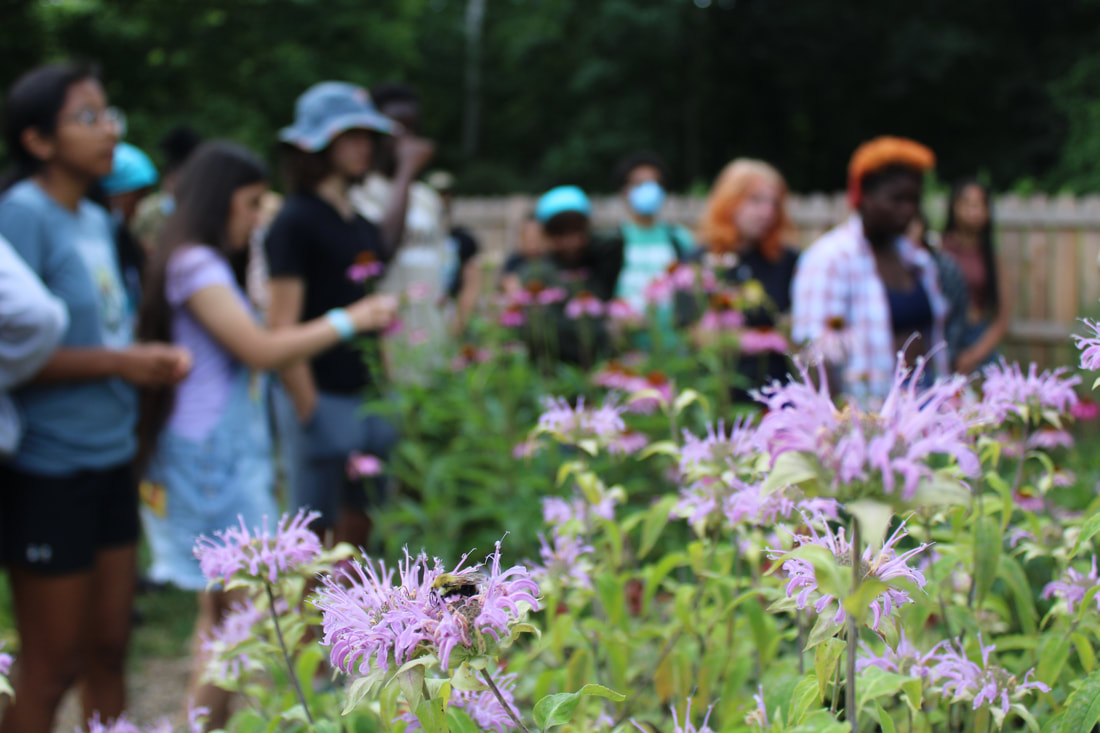
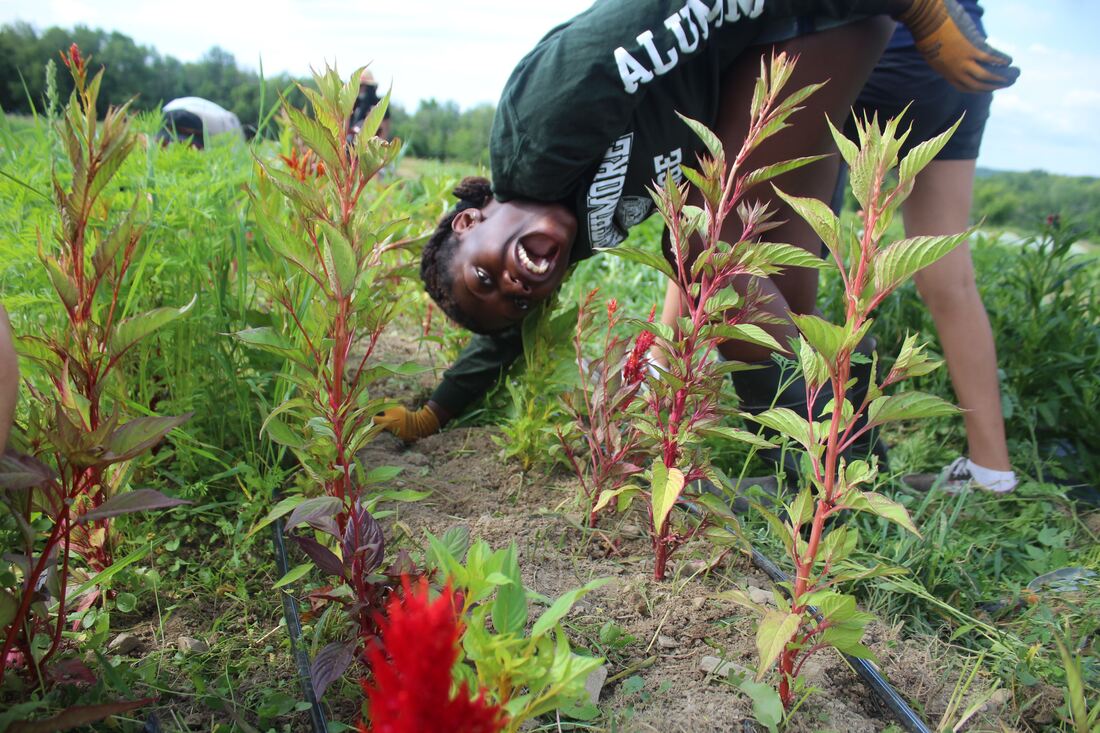
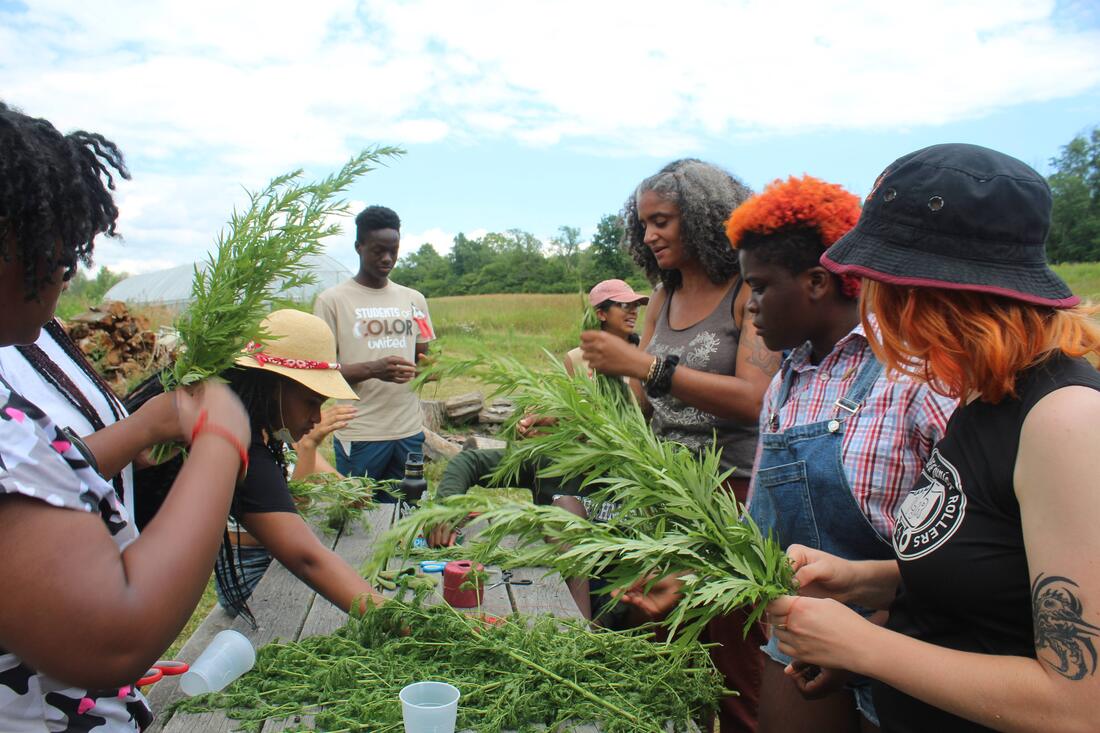
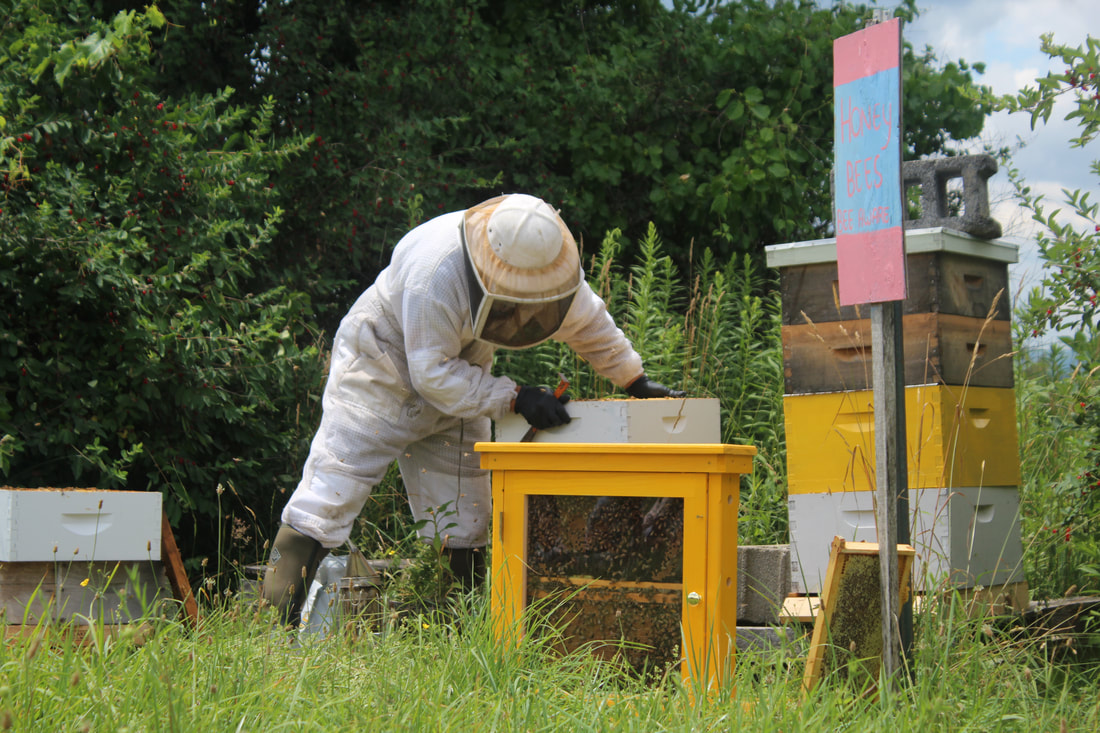
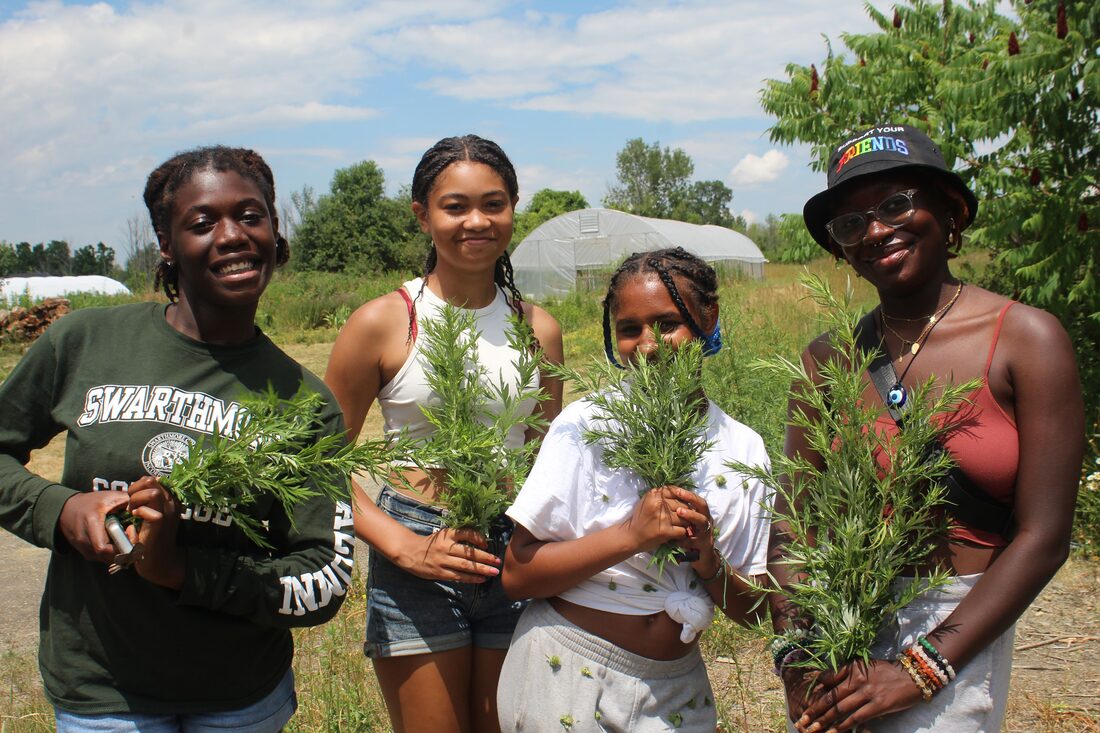
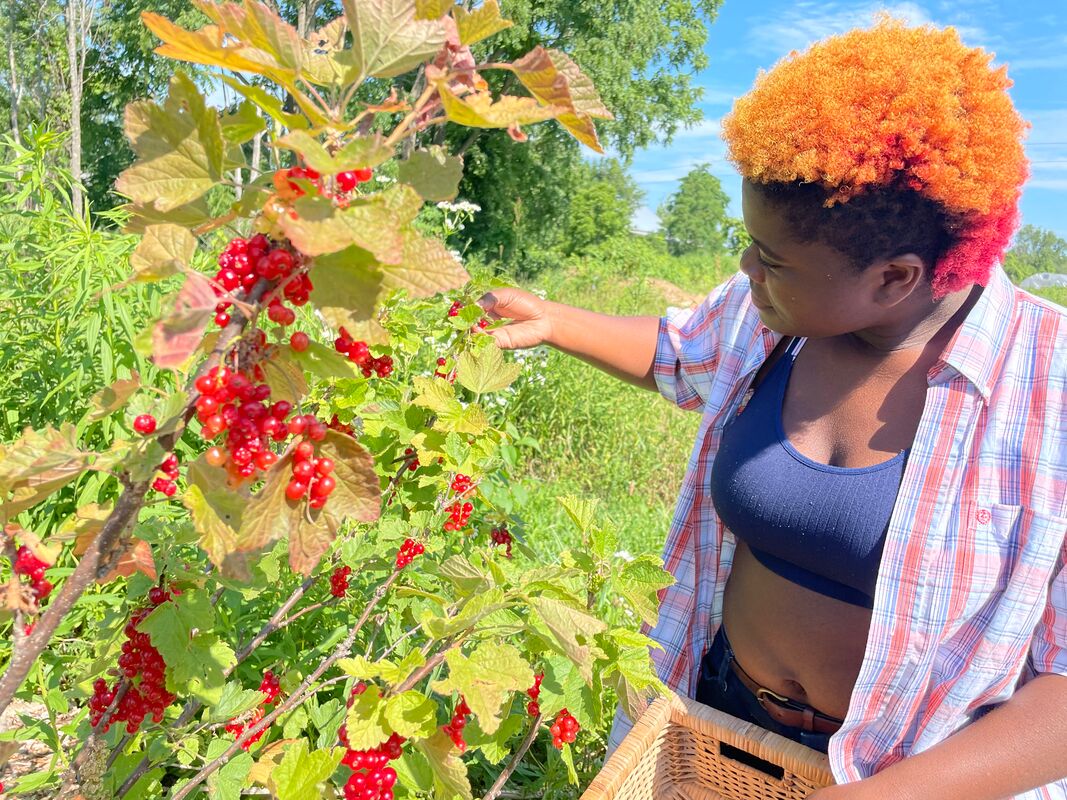
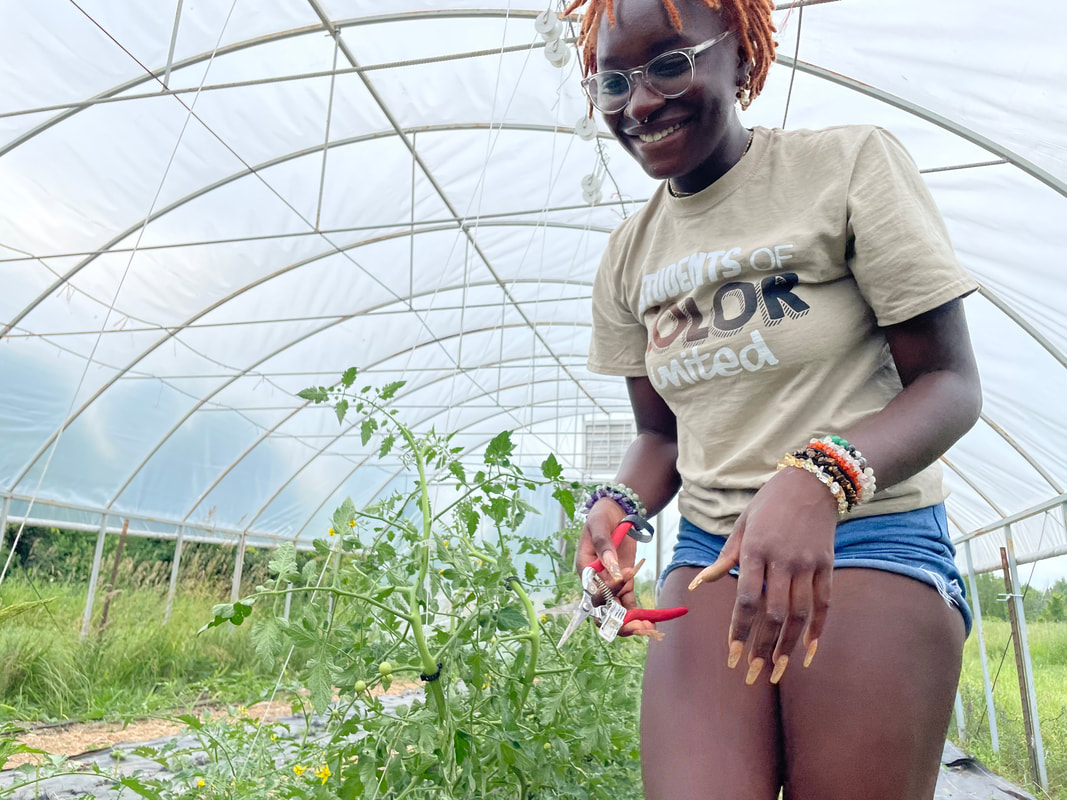
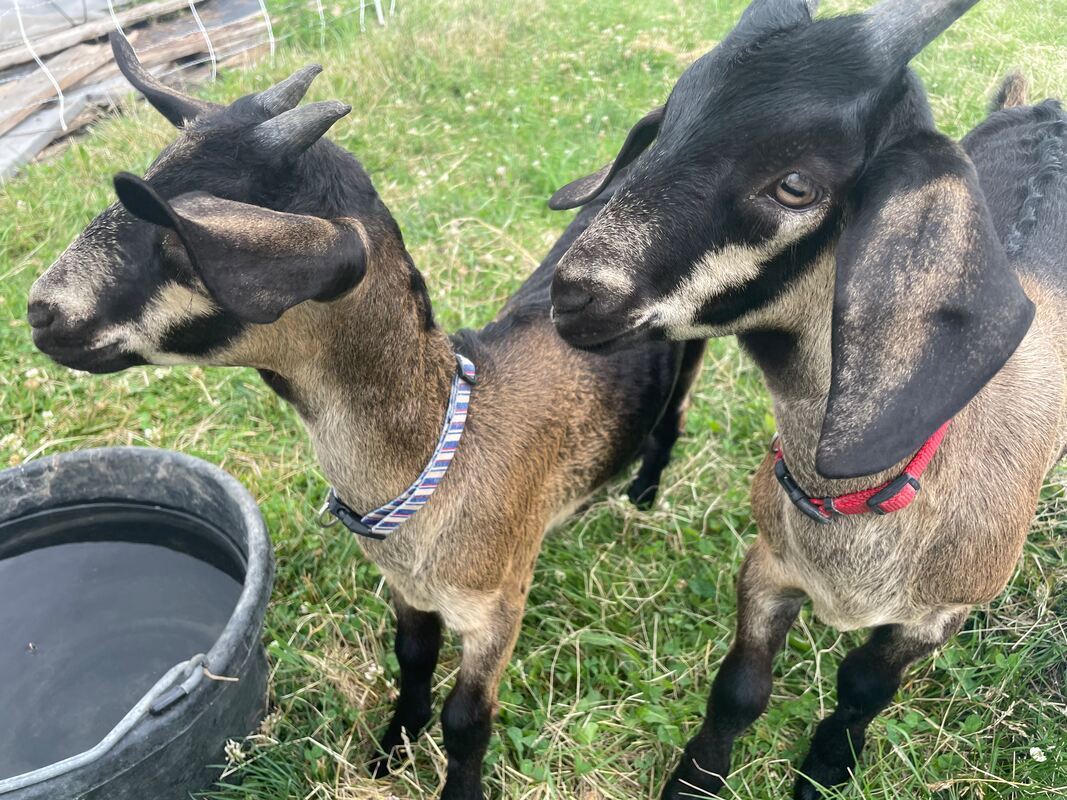
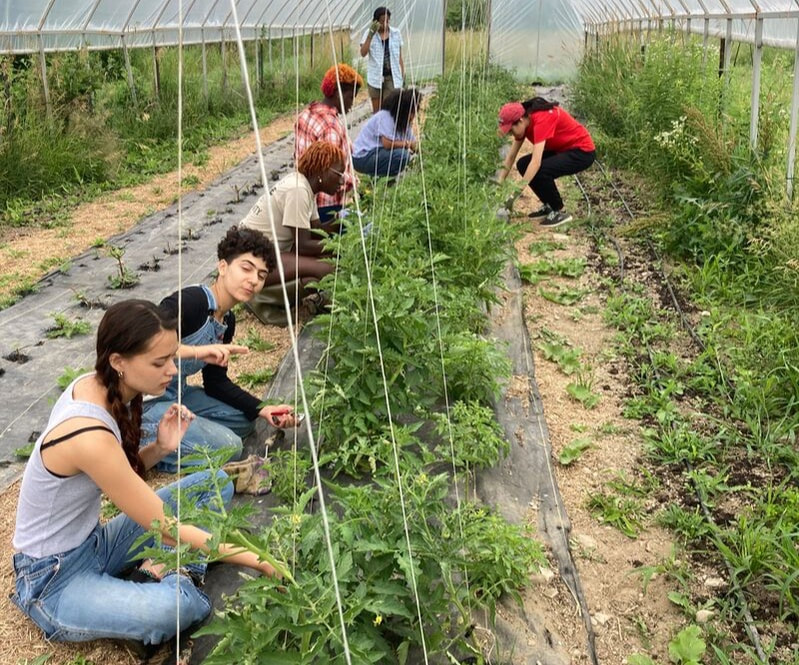
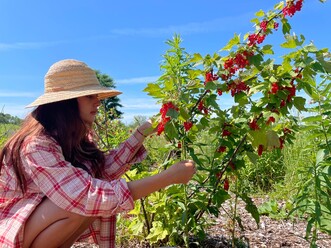
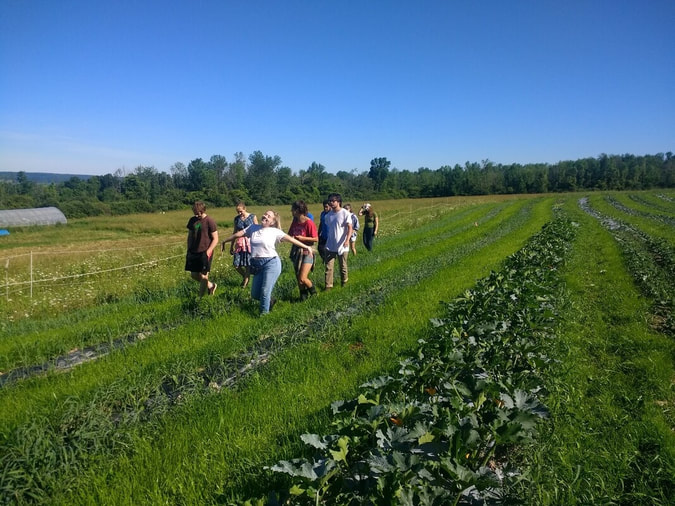
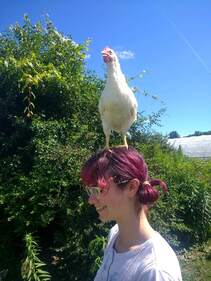
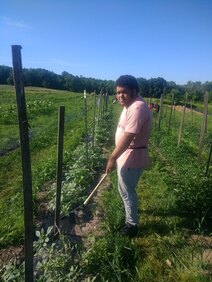
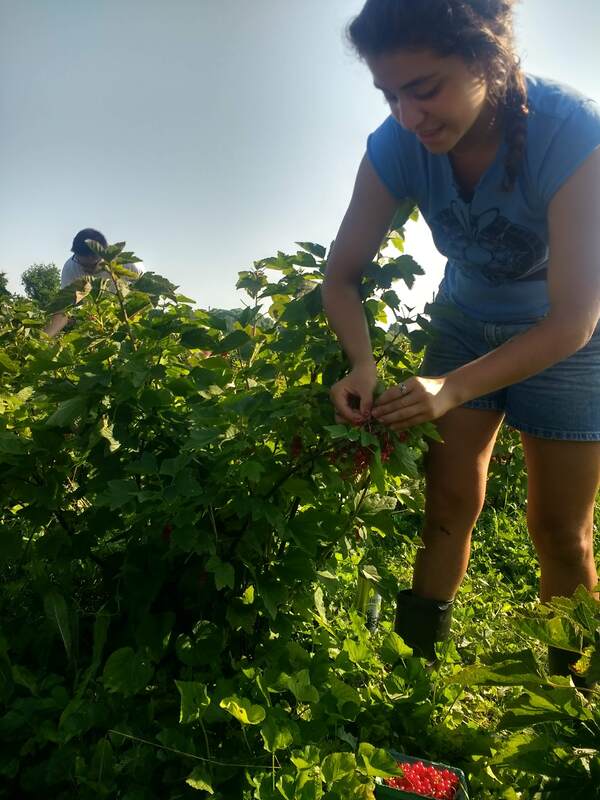
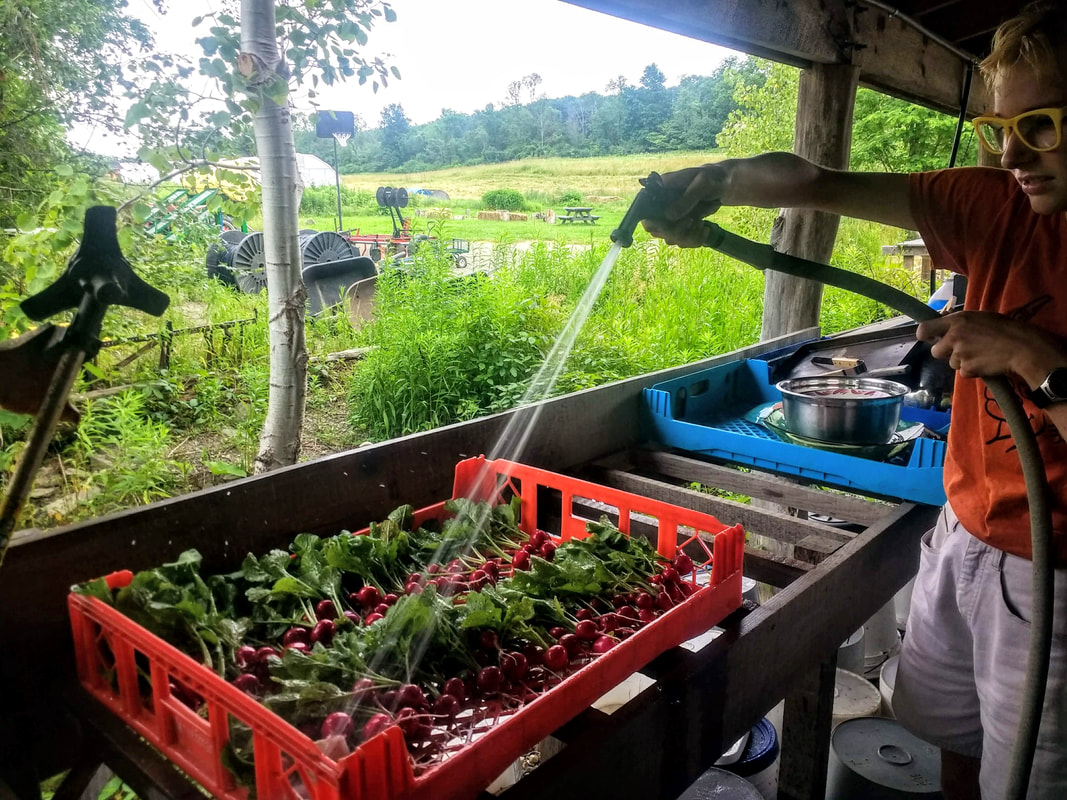
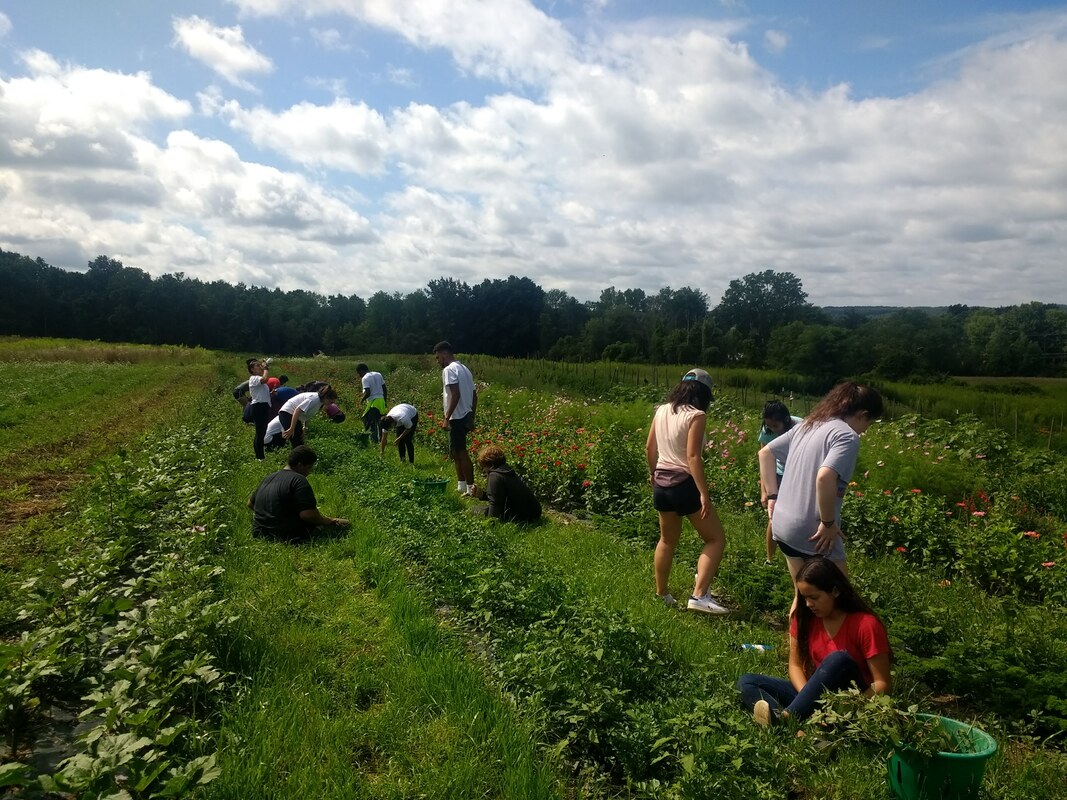
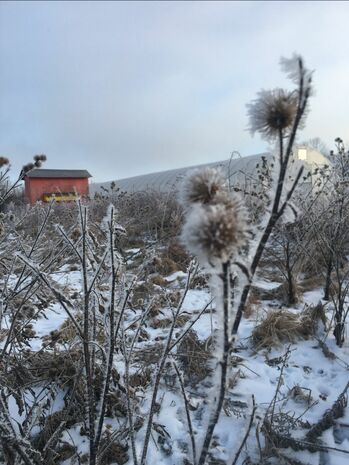
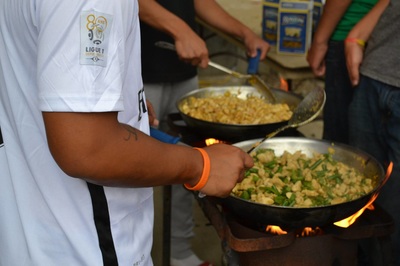
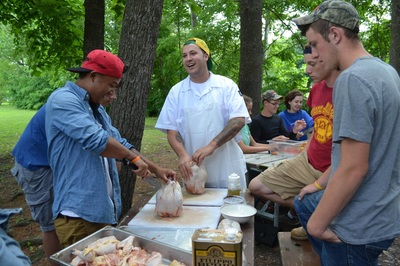
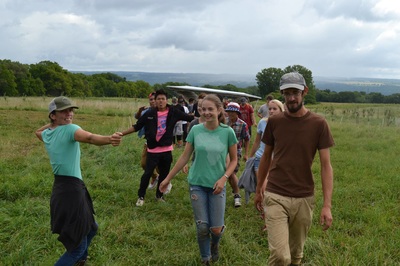
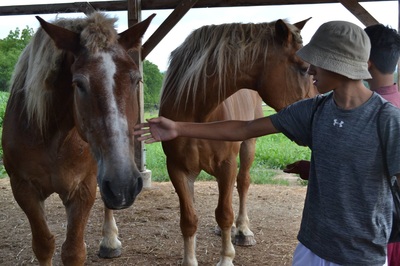
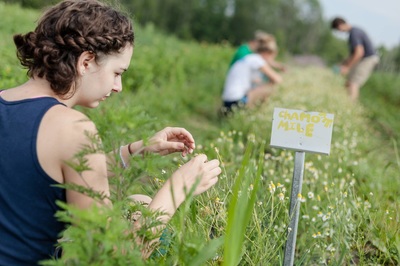
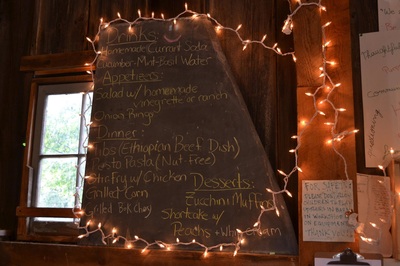
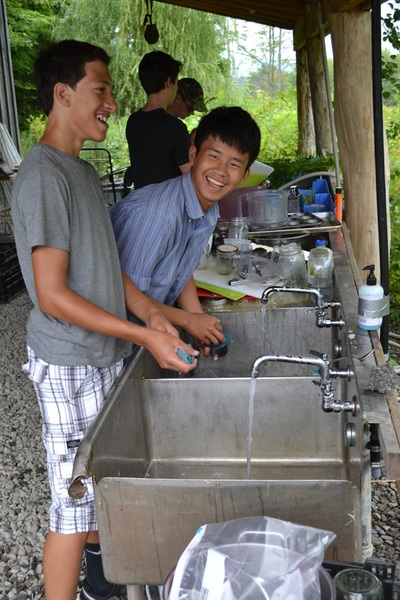
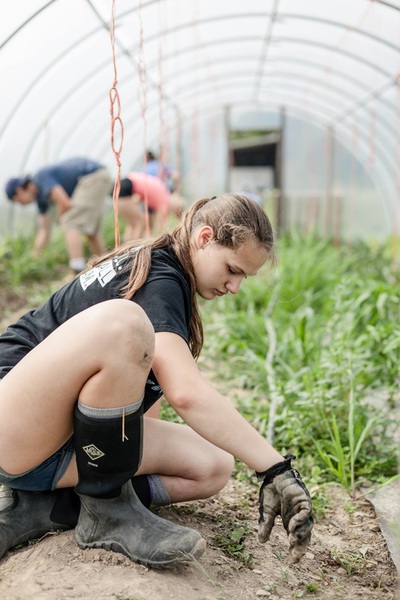
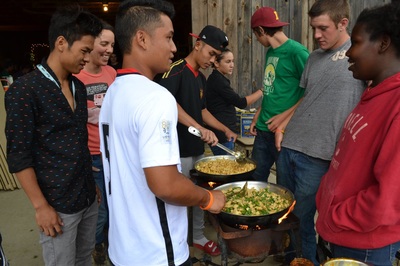
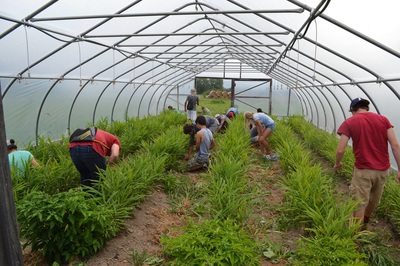
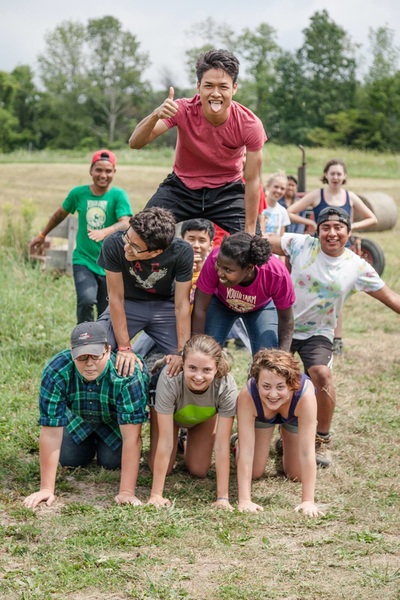
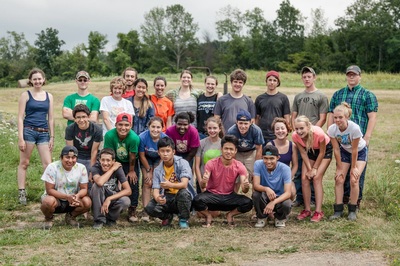
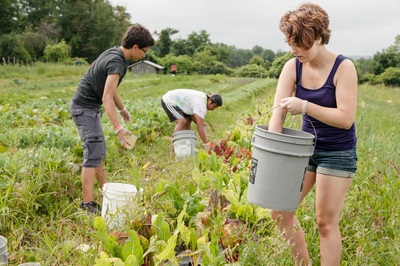
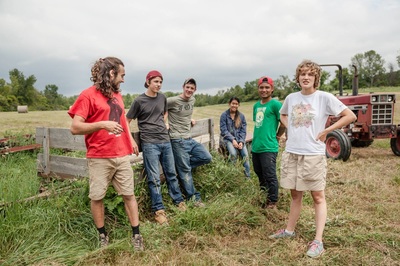
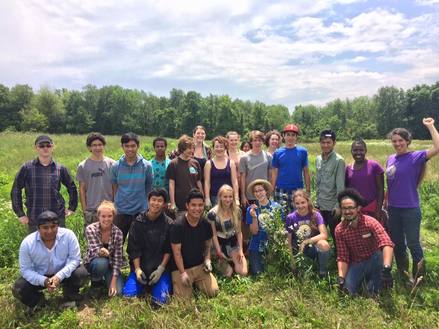
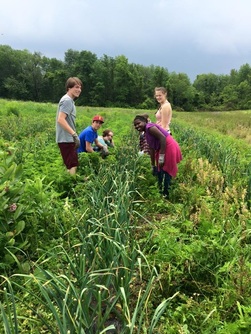
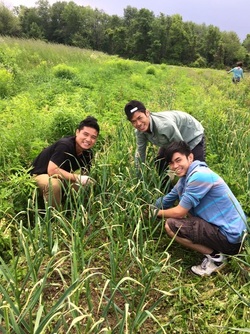
 RSS Feed
RSS Feed